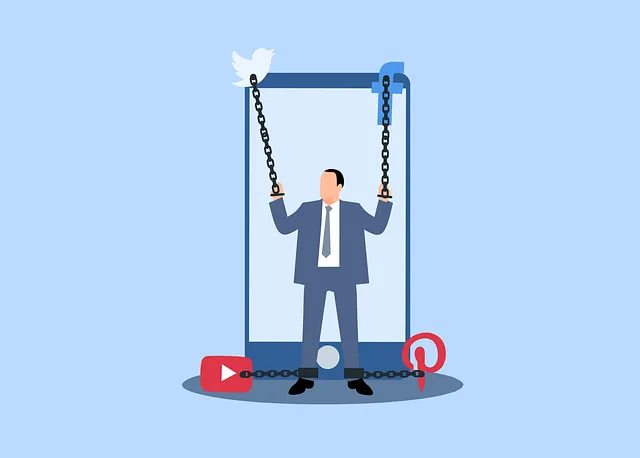Littleton Kaiser Mental Health Programs offer specialized Social Skills Training (SST) for individuals with anxiety, depression, or other conditions causing social isolation. Incorporating cultural sensitivity and burnout prevention strategies, SST empowers patients to build confidence, form connections, and manage relationships through role-playing scenarios and practical strategies. The program focuses on community outreach, integrating local support networks for enhanced long-term recovery. These comprehensive programs teach communication strategies, challenge negative thought patterns, and improve emotional well-being, ultimately boosting self-confidence and relationship skills. Success stories highlight significant improvements in daily functioning and overall well-being, making Littleton Kaiser mental health programs a game-changer in social skills development.
Social skills training is a powerful tool for individuals navigating mental health conditions, offering a unique approach to enhancing interpersonal interactions. This comprehensive guide explores the transformative potential of such training, with a focus on the renowned Littleton Kaiser Mental Health Programs as a beacon of hope. We’ll delve into its impact on participants’ lives, disarming challenges, and unveiling effective strategies. Discover how this program empowers individuals to thrive in social settings, fostering growth and improving overall mental well-being.
- Understanding Social Skills Training for Mental Health Conditions
- The Role of Littleton Kaiser Mental Health Programs in Social Skills Development
- Identifying Challenges and Benefits for Individuals with Mental Health Disorders
- Strategies Used in Effective Social Skills Training
- Success Stories and Real-Life Impact of Social Skills Training Programs
Understanding Social Skills Training for Mental Health Conditions

Social Skills Training (SST) is a specialized form of therapy designed to help individuals with mental health conditions navigate and improve their social interactions. It’s particularly beneficial for those who struggle with anxiety, depression, or other conditions that can isolate them socially. At programs like Littleton Kaiser Mental Health, SST goes beyond traditional talk therapy by incorporating practical strategies and role-playing scenarios tailored to each person’s unique needs. This hands-on approach enables individuals to build confidence in social settings and develop the skills needed to form connections, communicate effectively, and manage relationships.
Incorporating Cultural Sensitivity in Mental Healthcare Practice is a key aspect of SST at Littleton Kaiser. Understanding and respecting diverse cultural backgrounds ensures that the training is inclusive and relevant to all participants. Additionally, burnout prevention strategies for healthcare providers are integrated into the process to ensure both patients and therapists benefit from a sustainable and supportive environment. The program also emphasizes community outreach program implementation, fostering connections with local support networks and resources to enhance long-term recovery and well-being.
The Role of Littleton Kaiser Mental Health Programs in Social Skills Development

The Littleton Kaiser Mental Health Programs have played a pivotal role in fostering social skills development among individuals dealing with various mental health conditions. These programs understand that effective communication and interpersonal interactions are essential components of recovery, especially for those struggling with anxiety, depression, or other psychological challenges. Through tailored workshops and group sessions, they teach practical communication strategies to help participants navigate social situations more confidently.
By integrating Mind Over Matter principles, these mental health programs empower individuals to challenge negative thought patterns that can isolate them socially. The focus is not just on learning new skills but also on building resilience, self-esteem, and a sense of belonging. With dedicated professionals guiding the process, participants gain the tools to enhance their relationships, improve emotional well-being, and ultimately, prevent or manage conditions like depression effectively.
Identifying Challenges and Benefits for Individuals with Mental Health Disorders

Individuals with mental health disorders often face unique challenges when it comes to social interactions. These conditions can significantly impact an individual’s ability to navigate social situations, communicate effectively, and build meaningful relationships. The good news is that specialized training, such as those offered by Littleton Kaiser Mental Health Programs, focuses on empowering individuals to overcome these hurdles.
By participating in social skills training, people with mental health disorders can develop essential tools for self-awareness exercises, enhance their mental health awareness, and learn powerful communication strategies. These programs aim to foster better understanding, empathy, and confidence in various settings, from one-on-one conversations to group interactions. Ultimately, this training helps individuals feel more at ease in social environments, promotes healthier relationships, and contributes to improved overall well-being.
Strategies Used in Effective Social Skills Training

Effective social skills training for mental health conditions often employs a multi-faceted approach tailored to individual needs. Strategies may include role-playing scenarios that help individuals practice appropriate communication techniques, feedback sessions where peers and facilitators offer constructive criticism, and group discussions that encourage emotional awareness and coping strategies. At Littleton Kaiser mental health programs, these methods are designed to foster inner strength development while addressing specific challenges like depression prevention and anxiety relief.
The training focuses on enhancing social interaction, recognizing non-verbal cues, and managing emotions in various settings. By combining theoretical knowledge with practical exercises, participants gain confidence in their ability to navigate social situations, improve relationships, and build a support network. This holistic approach, combined with the expertise of trained professionals, equips individuals with the tools necessary for long-term mental well-being.
Success Stories and Real-Life Impact of Social Skills Training Programs

Social Skills Training programs, such as those offered by Littleton Kaiser mental health programs, have been transforming lives and fostering recovery for many individuals struggling with various mental health conditions. These evidence-based interventions focus on enhancing communication, interaction, and relationship skills, providing participants with practical tools to navigate social situations effectively. Success stories from these programs are abundant, showcasing remarkable improvements in daily functioning and overall well-being.
One of the key benefits is improved self-confidence and reduced anxiety in social settings. Through structured Self-Awareness Exercises and role-playing scenarios, individuals learn to manage their emotions, interpret non-verbal cues, and engage in meaningful conversations. For example, a young adult with social anxiety disorder, who once avoided social gatherings, successfully joined a support group after participating in a Littleton Kaiser program. They reported feeling more comfortable in social situations and even initiated conversations, marking a significant milestone in their journey towards a fulfilling life. Moreover, these programs often incorporate Cultural Sensitivity in Mental Healthcare Practice, ensuring that participants from diverse backgrounds feel understood and supported, thereby promoting inclusivity and positive outcomes.
Social skills training, as facilitated by programs like those offered by Littleton Kaiser Mental Health Programs, is a powerful tool for individuals navigating mental health conditions. By addressing specific challenges and implementing evidence-based strategies, these programs empower participants to build meaningful connections, improve their overall well-being, and integrate more fully into their communities. The success stories highlighted throughout this article underscore the profound impact that specialized social skills training can have on fostering resilience, enhancing quality of life, and promoting recovery.


